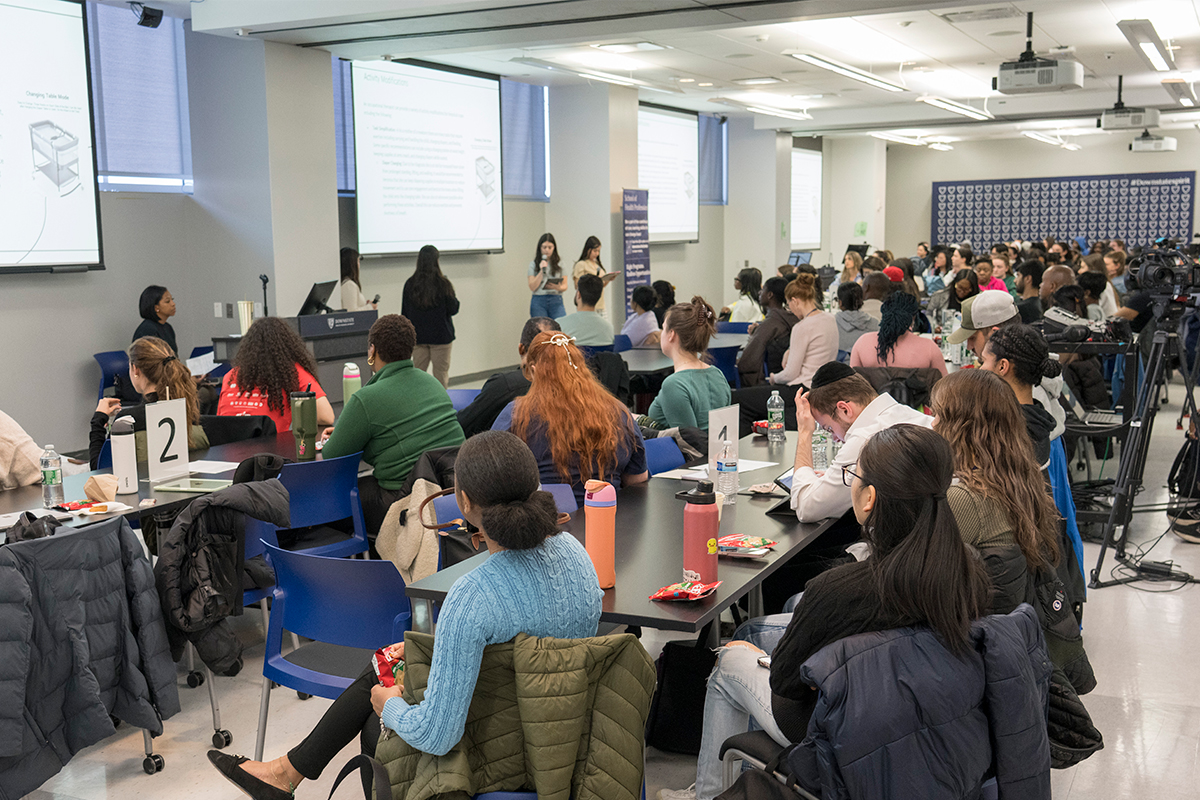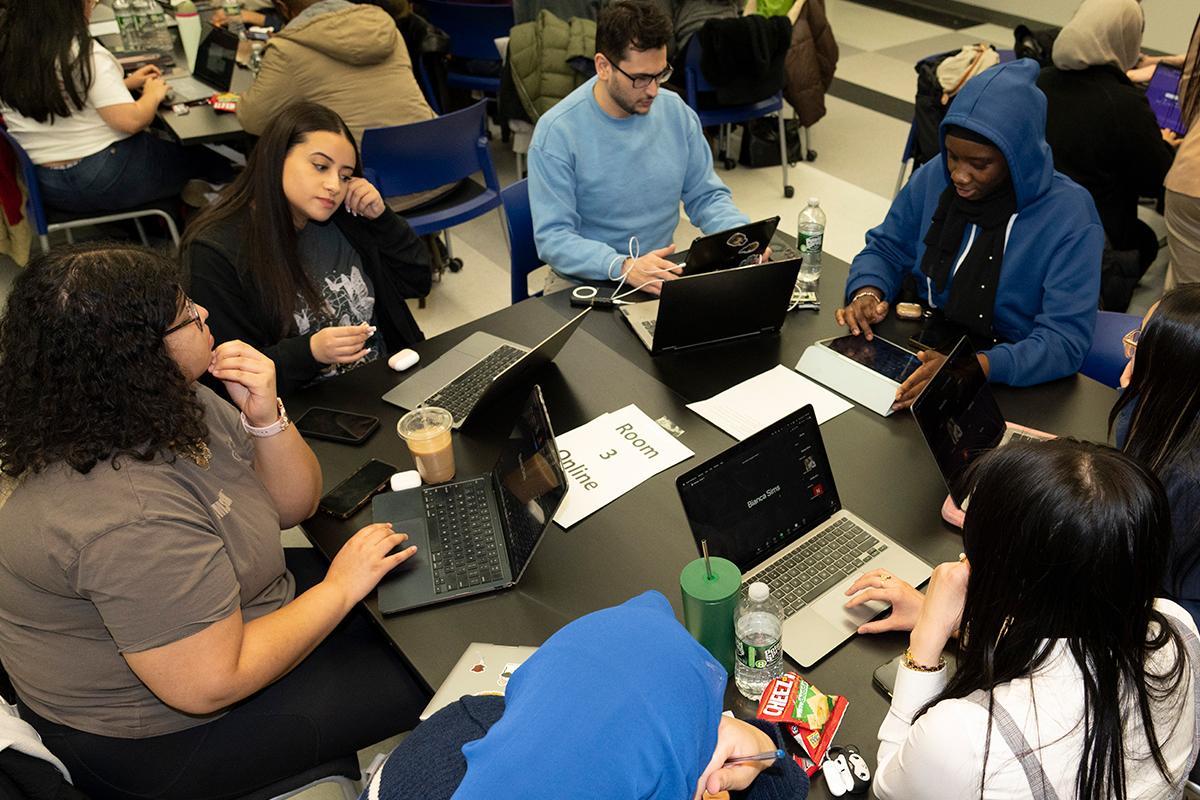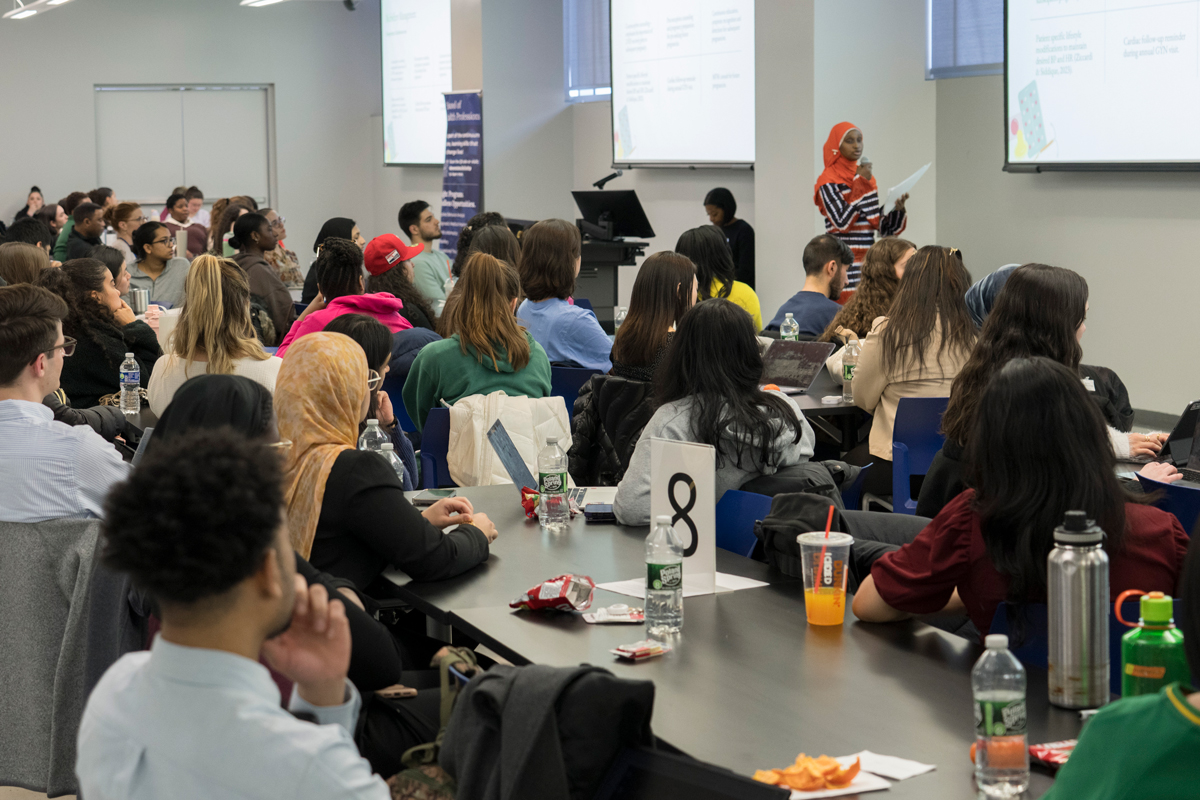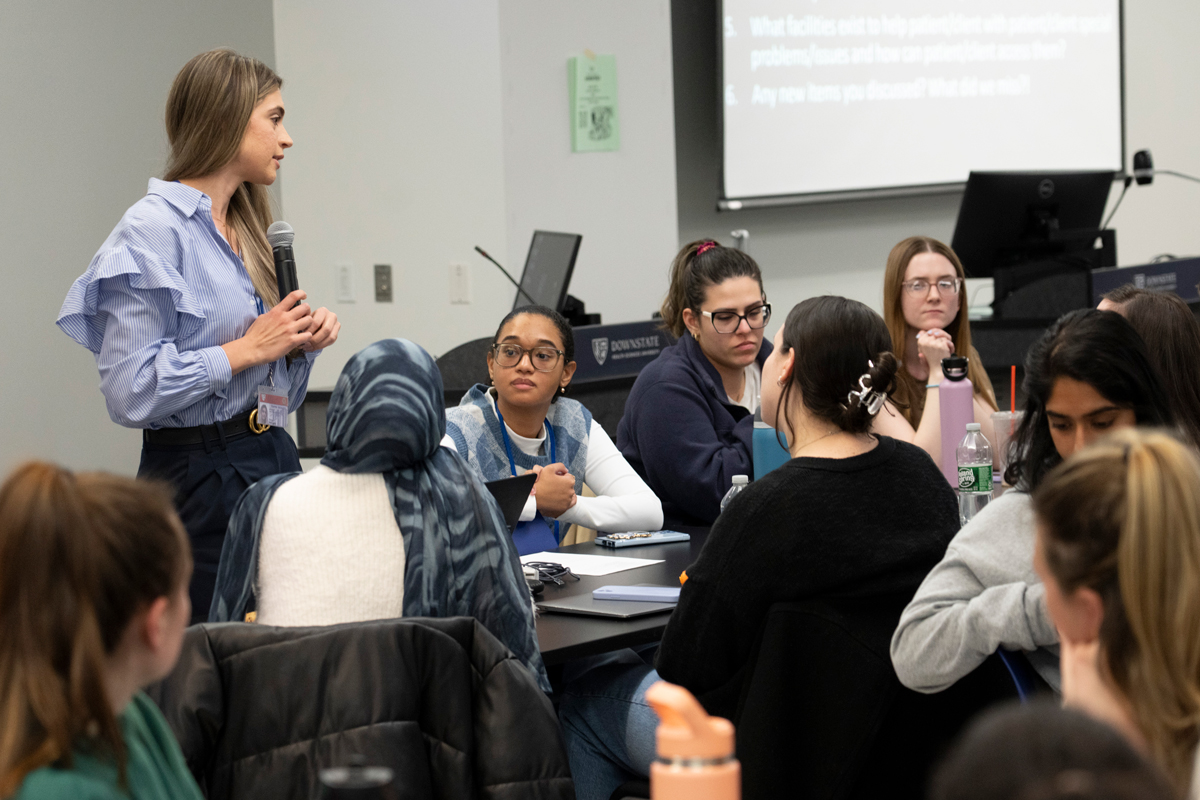Interdisciplinary Collaboration Enhances Patient Care at Case Study Roundtable
By Office of the President | Apr 8, 2025
More than 400 students from the School of Health Professions, College of Nursing, and School of Public Health participated in this year’s Interprofessional Case Study Roundtable, a hands-on learning experience designed to reflect the complexity of real-world healthcare.




Now in its eighth year, the Roundtable—created by SOHP Dean Allen Lewis, Ph.D., CRC—encourages students to move beyond traditional classroom instruction and develop the skills needed for interdisciplinary teamwork, a cornerstone of high-quality care.
Students work through real-life cases at the Roundtable that require critical thinking, cross-disciplinary communication, and collaborative care planning. In their training roles as midwives, nurses, imaging specialists, therapists, or public health experts—they gain clinical insight and a deeper understanding of how their disciplines intersect to improve outcomes.
This year’s case focused on “Veronica Clark,” a 29-year-old pharmacy student from Guyana who experienced fatigue, shortness of breath, and swelling during late pregnancy. Her symptoms were repeatedly dismissed. By the time she was diagnosed with peripartum cardiomyopathy—a rare and potentially fatal heart condition—her health had deteriorated significantly. Although she recovered, the delay revealed preventable failures that interdisciplinary teams must be equipped to address.
Each discipline contributed a unique perspective. Health Informatics students proposed using decision support tools and integrated data to identify risk earlier. Physician Assistant students mapped diagnostic steps and treatment plans, stressing care coordination. Midwifery students emphasized culturally responsive, patient-centered care and timely referrals for marginalized patients. Diagnostic Medical Imaging students demonstrated the value of echocardiograms in early detection and monitoring. Occupational Therapy students addressed reducing cardiac strain, supporting mental health, and postpartum recovery. Physical Therapy students discussed mobility and cardiac rehabilitation strategies. Nursing students focused on symptom monitoring, medication adherence, and discharge planning. Public Health students examined systemic inequities and called for policy reform and equitable access to care.
These combined perspectives created an interdependent care model. Working collaboratively, students showed how coordinated, cross-disciplinary approaches can lead to earlier intervention, improved outcomes, and a more just healthcare system.
Following the presentations, students continued their analysis in interdisciplinary teams, examining the systems that shaped Veronica’s experience. Their discussions addressed discharge planning, continuity of care, cultural responsiveness, and institutional reform.
Faculty praised the Roundtable for developing real-world competencies often missed in siloed learning—effective communication, collaboration, and shared responsibility. By looking beyond their roles, students gained a broader understanding of patient care. They left better equipped to lead with empathy, equity, and purpose.
Tags: Patient Care